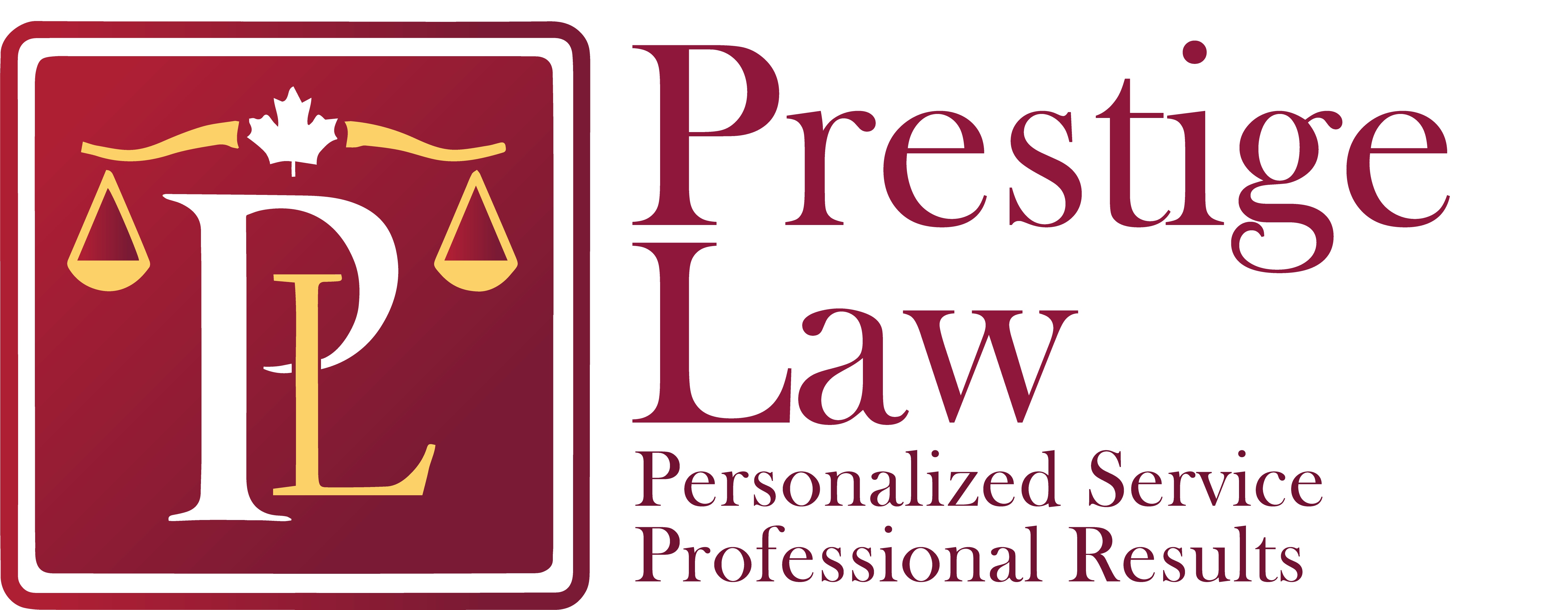What work can you do in Canada without needing a Work Permit
What work can you do in Canada without needing a work permit:
In general, foreign nationals require a work permit for legal authorization to work in Canada, but there are exceptions allowing business visitors to perform certain kinds of work without needing a permit.
Business visitors can work without needing a permit because they are not considered to be entering the Canadian labour market.
This article will explain
- What business visitors are generally legally permitted to do in Canada; and
- Common kinds business visitors and the specific conditions they must meet during their stay in Canada.
For more information on determining if you qualify as a work permit-exempt business visitor, read our previous article in this series.
If you have any doubt about whether you or one of your employees qualifies as a business visitor, you may wish to consult with an experienced immigration lawyer.
Being prepared with legal advice and/or a legal opinion letter can help you or your employee avoid running afoul of Canadian authorities, or being refused entry at the border.

What can business visitors do in Canada?
According to Canadian legislation, foreign nationals can qualify as business visitors when their work is limited to the following business activities during their time in Canada:
| Business activity | Description of role and activities |
|---|---|
| Meetings and consultations | Businesspersons attending: – Meetings; – Seminars; or – Conferences. |
| Research and design | Technical, scientific, and statistical researchers who are conducting independent research, or research for an enterprise in a country other than Canada. Purchasing and production management personnel conducting commercial transactions for a business in a country other than Canada. |
| Manufacture and production | Purchasing and production management personnel conducting commercial transactions for a business in a country other than Canada. |
| Marketing | Market researchers and analysts conducting research or analysis either independently, or for an enterprise in a country other than Canada. This can also include trade fairs and promotional personnel attending a trade convention. |
| Sales and purchasing | Sales representatives and agents taking orders or negotiating contracts for goods and services (but not delivering goods or providing services) for an enterprise in a country other than Canada. |
| Distribution | Transportation operators transporting goods or passengers from Canada, without unloading in Canada, to the territory of another country; or operators who transport goods and passengers from another country to Canada. |
| After-sales or After-lease service | Installers, repair, and maintenance personnel, and supervisors who: – Possess specialized knowledge essential to the seller or lessor’s contractual obligation; and/or – Who is performing services or training personnel to perform services? The need for the foreign national to enter Canada must be under a warranty, or other service contract incidental to the sale or lease of commercial or industrial equipment or machinery (including computer software). The commercial or industrial machinery/equipment must be from an enterprise located outside Canada to meet the requirements for business visitors. |
| General service | This encompasses: – Businesspeople engaging in activity at a professional or technical level; – Management and supervisory personnel engaging in a commercial transaction for an enterprise in a country outside Canada; – Financial service personnel (insurers, bankers, or investment brokers) engaging in commercial transactions on behalf of an enterprise located outside Canada; – Tourism personnel (tour and travel agents, tour guides or tour operators) attending or participating in conventions or conducting a tour that has begun in a country other than Canada; or – Translators or interpreters performing services as employees of an enterprise in a country other than Canada. |
What conditions should be met to maintain business visitor status?
Here are some common examples of business visitors and the specific conditions that are placed on their stay:
| Example of a business visitor | Specific conditions required for business visitor status |
|---|---|
| After-sales service provider as part of a warranty or sales agreement | The foreign national’s service contract must be for specialized commercial or industrial equipment purchased or leased outside Canada. These contracts must be related to – Repair; – Service; – Set up; – Test; and/or – Supervising work. |
| Supervisors | Must supervise the installation of specialized machinery purchased or leased outside Canada. |
| Training and installation workers | Foreign nationals enter to train prospective users or maintenance staff in Canada on how to use specialized equipment purchased outside Canada. The foreign national must maintain their position in the home branch and not be paid any compensation by the Canadian branch. |
| Member of a board of directors, attending a meeting in Canada | Foreign nationals attending a board of directors meeting in Canada are generally considered to be business visitors if there is no direct entry into the Canadian labour market. |
| Employees of short-term temporary residents of Canada | Foreign nationals employed by short-term residents of Canada in a personal capacity (for example, as a nanny, personal assistant, or caregiver) may be considered business visitors when accompanying their employer. If the employer extends their stay (usually longer than 6 months), such that the employee is no longer predominantly working outside Canada, or their primary source of remuneration is no longer outside Canada, these employees may no longer qualify as business visitors. |
| An employee of a foreign company that is contracting a Canadian company | In situations where a foreign company has contracted a Canadian company to do some work, they may send an employee to Canada for quality assurance and inspection purposes. The foreign national in this case must remain an employee of the foreign company, on said company’s payroll. In addition, the foreign company requesting the service must be the primary beneficiary of the employee’s work and maintain their principal place of business outside Canada. |
Further conditions
After-sales service provider as part of a warranty or sales agreement
These contracts must be either an extension of the original agreement, or negotiated as part of the original sales, rental, or lease agreement for the equipment.
Member of a board of directors, attending a meeting in Canada
If these individuals wish to perform other business-related activities beyond attending the meeting (even those related to their position as a member of a board) while in Canada, they may require a work permit.
An employee of a foreign company that is contracting a Canadian company
These foreign nationals may be considered business visitors in Canada and may have the opportunity to stay in the country for up to two years.
The ability to stay in Canada for such an extended period as a business visitor is not common. Applicants in this role may need to re-apply to extend their business visitor status periodically.
Canadian regulations around business visitors are complex and nuanced.
Even if you are confident that you or your employee qualifies as a business visitor, it may be worth consulting with an experienced immigration lawyer and/or obtaining a legal opinion letter prior to seeking entry to Canada as a business visitor.
Permitted Activities for Business Visitors
Meetings and Consultations:
- Attending meetings, seminars, or conferences.
Research and Design:
- Conducting independent research or working on research for enterprises outside Canada.
Marketing and Sales:
- Market researchers, analysts, and sales representatives negotiate contracts without delivering goods/services.
- Trade fair attendees and promotional personnel.
Distribution:
- Transportation operators transport goods or passengers internationally without unloading in Canada.
After-Sales/Lease Services:
- Installing, repairing, or maintaining commercial/industrial equipment sold/leased from abroad, under warranty or service contracts.
General Services:
- Includes roles like financial service personnel, tourism personnel, and translators working for enterprises based outside Canada.
Conditions to Maintain Business Visitor Status
- Activities must not involve direct entry into the Canadian labour market.
- The primary source of remuneration must remain outside Canada.
- Business visitors must maintain their employment with a foreign enterprise.
Examples and Specific Conditions
After-Sales Service Providers:
- Work related to repairs, setups, or supervision for equipment purchased outside Canada.
Supervisors and Trainers:
- Supervising or training personnel on specialized machinery from outside Canada.
Members of Boards of Directors:
- Attending meetings without engaging in broader business activities in Canada.
Foreign Employees of Contracting Companies:
- Conducting quality assurance or inspections for projects involving Canadian companies, while remaining employed and paid by the foreign company.
Working in Canada Without a Work Permit: What You Need to Know
Canada welcomes skilled professionals and business individuals from around the world, but not every type of work requires a formal work permit. For certain roles and scenarios, individuals can perform work-related activities without obtaining one, provided they meet the specific criteria. One prominent example includes business visitors who are not considered part of the Canadian labor market. This guide explores the scope of work that can be done in Canada without a work permit, with a focus on business visitors and their activities.
Who Are Business Visitors?
Business visitors are foreign nationals entering Canada to engage in specific professional or business activities. However, unlike temporary foreign workers, business visitors do not take on roles that directly impact the Canadian labour market. Their activities are generally tied to their employment in their home country, and they remain compensated by a foreign enterprise.
Permissible Activities for Business Visitors
Under Canadian immigration regulations, business visitors can engage in certain activities without a work permit. These include:
Participation in Meetings and Conferences
- Business visitors can attend meetings, seminars, and conferences to discuss or plan professional matters.
- They may represent their organizations or provide advisory input, but not actively work on Canadian projects.
Research and Development Activities
- Professionals involved in independent research or working on projects for companies located outside Canada.
- Technical or scientific researchers analyzing data or developing prototypes for non-Canadian firms.
Sales and Contract Negotiations
- Foreign sales agents can take orders, negotiate contracts, or engage in promotional activities for their overseas enterprises.
- They are prohibited from delivering goods or directly offering services within Canada.
Trade and Marketing
- Market analysts conducting studies, attending trade fairs, or promoting products on behalf of foreign companies.
- Activities focus on exploring Canadian market opportunities for non-domestic firms.
After-Sales and Warranty Services
- Specialists with expertise in maintaining or installing equipment purchased from foreign companies can enter Canada for these purposes.
- Services must be part of an ongoing sales or warranty agreement.
Distribution and Logistics
- Transportation operators deliver goods or passengers across borders without engaging in domestic unloading or logistics work.
General Professional Services
- Financial experts (e.g., bankers, insurers, or investment brokers) performing transactions for foreign clients.
- Tour operators, translators, and supervisors acting on behalf of foreign organizations.
Examples and Conditions of Business Visitor Status
While these activities sound straightforward, there are strict conditions for maintaining business visitor status:
After-Sales Service Technicians:
- Allowed to install or repair specialized equipment purchased outside Canada. Their contract must explicitly define the scope of service under a warranty or sales agreement.
Supervisors:
- Permitted to oversee equipment installations but cannot engage in physical labour.
Members of Boards of Directors:
- May attend board meetings but require a work permit for other business activities.
Employees of Foreign Companies:
- Workers inspecting or ensuring quality for contracts involving Canadian firms. They must remain employed by their home company and receive no compensation from Canadian sources.
Key Requirements to Maintain Status
To qualify as a business visitor in Canada, individuals must meet these fundamental conditions:
Primary Source of Income:
- Compensation must come from an employer or entity outside Canada.
Non-Labor Market Impact:
- The role should not contribute directly to the Canadian economy in a labour-intensive capacity.
Temporary Stay:
- The stay in Canada should be short-term, with the visitor returning to their home country once the activity is completed.
Why Choose Canada?
Canada has long been a preferred destination for international students due to its world-class education system, multicultural society, and welcoming immigration policies. This internship program not only enhances students’ professional skills but also serves as a stepping stone for those considering a long-term career in Canada

Work Permit Options for International Students in Canada: Jobs and Internships
Canada offers international students ample opportunities to gain valuable work experience while pursuing their studies, making the country an attractive destination for education and career growth. Below is an overview of the work options available to international students for jobs and internships:
1. Working While Studying
International students with a valid study permit can work during their academic program under certain conditions:
On-Campus Work
- Students can work on-campus without a work permit if they are enrolled full-time at a designated learning institution (DLI).
- On-campus employers may include the school itself, a faculty member, or private contractors offering services within the campus premises.
Off-Campus Work
- Eligible students can work up to 20 hours per week during regular academic sessions and full-time during scheduled breaks, such as winter or summer holidays.
- This helps students gain professional experience and earn additional income.
2. Internships and Co-op Programs
International students enrolled in academic programs that require a work component (internship or co-op) as part of their curriculum must obtain a co-op work permit.
Co-op Work Permit Requirements
- The work must be integral to the program of study.
- A letter from the institution confirming the need for a co-op or internship placement is required.
- The co-op placement cannot exceed 50% of the total program duration.
3. Post-Graduation Work Opportunities
After completing their studies, international students can apply for a Post-Graduation Work Permit (PGWP), allowing them to work in Canada and gain professional experience.
Post-Graduation Work Permit Details
- The duration of the PGWP is tied to the length of the academic program, up to a maximum of three years.
- A PGWP is an open work permit, allowing students to work for any employer in any industry.
This work experience can be critical for transitioning to permanent residency through pathways like Express Entry and the Canadian Experience Class.
4. Job Opportunities for International Students
International students in Canada can access various part-time and full-time job opportunities during and after their studies, including:
- Retail and Hospitality: Jobs in stores, restaurants, and hotels.
- Customer Service: Roles in call centres or administrative support.
- Tutoring: Academic support roles on campus or in private settings.
- Technology and Research: Positions related to IT, data analysis, or research in their field of study.
5. Internship Opportunities
Canada’s strong emphasis on experiential learning provides international students with robust internship opportunities.
- University-Led Internships: Many institutions partner with industries to provide internships for their students.
- Industry-Specific Internships: Opportunities in fields like engineering, healthcare, technology, and finance are common.
- Government and Non-Profit Roles: Internships in social work, policy research, and environmental projects.
When to Seek Legal Assistance
The rules surrounding business visitors can be complex, and even small mistakes may lead to entry refusals at the border. Consulting an experienced immigration lawyer is often advisable. A legal opinion letter can also provide peace of mind and act as a supporting document during border inspections.
Challenges and the Need for Legal Assistance
Despite the clear advantages, navigating Canada’s business visitor regulations can be complex:
- Misinterpretation of permissible activities can lead to entry denials.
- Supporting documents, such as a legal opinion letter, can reassure Canadian immigration officials of compliance.
- Legal assistance ensures that all criteria are met and documentation is properly prepared.

Why Legal Advice Matters for Business Visitors in Canada
Navigating Canadian immigration regulations can be complex, especially when determining whether a work permit is required. Seeking professional legal advice ensures you understand your rights, responsibilities, and the potential implications of your activities in Canada.
Benefits of Legal Advice for Business Visitors
Clarity on Eligibility
Immigration lawyers can evaluate your specific situation to confirm whether you qualify as a business visitor or require a work permit.Avoiding Legal Issues
Misunderstanding regulations can lead to entry denials, fines, or even future bans. A legal opinion letter from a qualified immigration lawyer demonstrates that you’ve taken necessary steps to comply with Canadian laws.Customized Guidance
Legal experts tailor advice based on your industry, role, and activities planned in Canada, ensuring no aspect is overlooked.Smooth Border Entry
Presenting clear documentation and proof of your business visitor status can streamline interactions with Canadian border officials.Support for Complex Cases
For scenarios involving multiple jurisdictions, temporary extensions, or specialized roles, legal assistance can provide solutions and prevent unnecessary delays.
When Should You Seek Legal Advice?
- If your role involves tasks beyond standard business visitor activities.
- When traveling to Canada for extended periods (over six months).
- If you’re uncertain about the documentation required.
- When your activities involve significant interaction with the Canadian labor market.
How to Choose the Right Immigration Lawyer
- Look for experience in Canadian immigration laws specific to business visitors.
- Seek client testimonials or case studies showcasing successful outcomes.
- Ensure they offer ongoing support, including preparation for border interviews.




